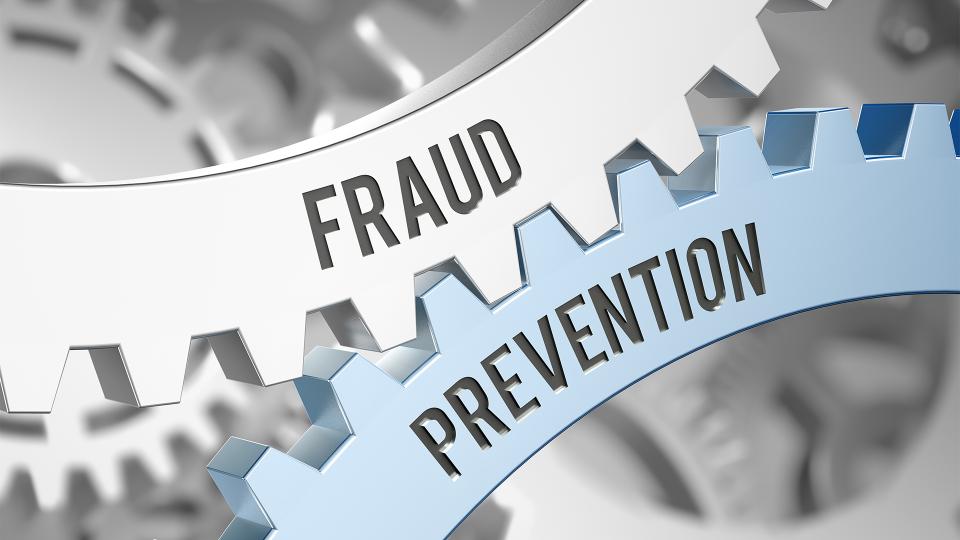
Every few months the Internal Revenue Service warns about fraudsters sending out emails (phishing) or text messages (smishing) from what are not IRS points of origin, but cleverly appear to be. The newest IRS advisory describes a scheme that Smith’s Samuel Handwerger says “is very clever, as it reverts to the old-fashioned method using ‘snail mail.’”
The fraudsters are now back to using mail, mimicking the IRS look, says Handwerger, CPA, and accounting lecturer for the University of Maryland’s Robert H. Smith School of Business. “This is a serious risk to potential victims since mail is the most common approach with which the ‘legitimate’ IRS will make contact,” he says. “So, at first blush, the innocent taxpayer will not question the source as being fraudulent as it is through the usual method of delivery.”
Handwerger also is faculty advisor for both TerpTax and Justice for Fraud Victims (JFV) – a pair of Smith-based, pro bono initiatives available to individuals in the surrounding local communities.
In partnership with Smith accounting students, TerpTax prepares tax returns for free for qualifying individuals for whom the cost of tax return preparation might otherwise be an economic burden. The service has operated since 2015 under guidelines of the IRS's Volunteer Income Tax Assistance and Tax Counseling for the Elderly programs.
Subsequently, Justice for Fraud Victims launched in 2023 to provide pro bono fraud accounting and examination services, Handwerger says. “These services run through a large continuum of possible scenarios that can help a victim recover a loss…from accounting to data analytics in order to find the origin of the fraudulent transactions or to nail down the extent of the loss.”
Seemingly unrelated, TerpTax and JFV “are finding common ground to educate the public about fraudsters appearing to represent the IRS,” Handwerger notes.
Regarding phishing schemes using near duplicates of the IRS logo, “Taxpayers often mistakenly assume these emails to be legitimate, " Handwerger says. “And the emotions of these recipients are innately susceptible when these bogus emails claim that the taxpayer is due a refund or, worse yet, needs to act fast to avoid arrest for tax evasion.”
He continues: “Someone who innocently responds to these frauds will soon find that in order to effectuate a sizable tax refund or to avoid jail time, the taxpayer needs to quickly supply sensitive personal information about bank accounts or other items that can be used to steal someone's identity for the purpose of fraud, including filing fraudulent tax returns in the victim's name, claiming refunds that go to the perpetrators address where the monies are stolen from the coffers of our federal government.”
Alternatively, he adds, responders can be victimized by malware maliciously gaining access to their computer or cell phone by that innocent click on the fraudulent email or text message.
“Fraudsters love these types of scams because of the ease with which they can send out to thousands of possible victims at almost zero cost of delivery through email or phone where the identity and location of the fraudster can be easily hidden,” Handwerger says. “On the other hand, through public education and fraud awareness programs, many people now understand that the IRS will not, and will never, contact taxpayers through email or text message.”
Now, the latest “snail mail” approach by fraudsters, he adds, raises the ante for a public education function, like that through a TerpTax-JFV combination.
One already-identified tactic of the current fraud, Handwerger says, involves a cardboard envelope from a delivery service including a letter with the IRS masthead and wording claiming that the notice is in relation to the taxpayer’s unclaimed refund. From there, taxpayers may be asked to provide sensitive taxpayer information including detailed pictures of driver’s licenses, cell phone number, bank routing information, social security number, and bank account type.
“TerpTax and Justice for Fraud Victims are warning individuals to look out for signs of such fraud,” Handwerger says. “Common flags are fake contact information of the IRS, an IRS logo that is not an exact duplicate, a poorly worded message, including odd punctuation and a mixture of fonts as well as other inaccuracies.”
He adds: “More importantly is the letter’s appeal to the core element of finding fraud victims, using “FUD” …fear, uncertainty, and doubt. By making claims that the taxpayer needs to act fast to avoid untold bad results or missing important tax refunds, the victim is lured to act fast…reducing the all-important element of thinking through or researching the claim the letter is making.
Handwerger advises that recent victims or targets of an IRS email or text message scam can report this by sending the email or a copy of the text/SMS as an attachment to phishing@irs.gov. This should include the caller ID (email or phone number), date, time and time zone, and the number that received the message. Mail scams can be reported to the Treasury Inspector General for Tax Administration or the Internet Crime Complaint Center.
“In the meantime, TerpTax and Justice for Fraud Victims stand by to offer any help,” Handwerger says. “Contact us via the TerpTax website.”
Media Contact
Greg Muraski
Media Relations Manager
301-405-5283
301-892-0973 Mobile
gmuraski@umd.edu
Get Smith Brain Trust Delivered To Your Inbox Every Week
Business moves fast in the 21st century. Stay one step ahead with bite-sized business insights from the Smith School's world-class faculty.